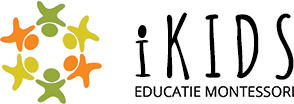Concepts
Our concepts:
- Children are born curious. They, by themselves, want to discover how the world works. Their wish to explore and understand the world is something natural. We don’t need to force children to learn. It is enough to guide them, set points of reference and give them clues.
- Those children, who are only given clues and are left to find the way on their own, will develop a better sense for discovery than spoon-fed children who are hand-kept.
- By forcing children to study, we affect their natural will to learn.
- By actively taking part in the class, the child develops an active mind and an independent character
- The participant child gets the chance to make mistakes, to flounder and stumble. He then learns to get up and keep going.
- The freedom to talk openly and share individual experiences helps children learn from each other, leads to a casual, non-rigid behavior and facilitates the ease of expression.
We believe this approach finally builds self-confidence.
At iKids, it is the child who is in the center of attention during the educational process, not the teacher. The teacher’s job is to observe and, only when necessary, to intervene and guide, but not to attract the child’s attention to herself.
- Children are sensible beings. Their minds are not “tabula rasa”, where the teacher writes knowledge. Children are curious and they will rather enjoy discovering the world, on their own. We treat kids as intelligent explorers and simply guide them throughout their learning process, rather than see them as inert beings.
This way, they will go deeper into discovering and understanding, until their own mind makes sense of what they look after.
If we however obligate them to study, we will inhibit their natural will to learn. - Letting the child explore by himself does not mean neglecting the child. We carefully observe and guide the children throughout the cognitive process. We know that the child himself must make an effort, must focus and reason, and we just encourage the child to make this effort.
- Each child has his own pace of learning. Not all children learn to walk or speak at the same age. If we rush the child, we stress him. This stress will only set back his will to learn.
- Each child has his own way of dealing with a task.
- Teacher cannot force the child to judge, but can help and motivate him.
- The child’s own interest is the best motivation for him to be focused on his activity.
Hands-on approach is essential for pre-school kids.
At this age, children gain most of their information with the help of their senses, whereas theoretical explanations are less useful.
To the pre-school child, it is crucial to feel, smell, sense in order to get and fix information.

